Related Research Articles

The Prix Goncourt is a prize in French literature, given by the académie Goncourt to the author of "the best and most imaginative prose work of the year". The prize carries a symbolic reward of only 10 euros, but results in considerable recognition and book sales for the winning author. Four other prizes are also awarded: prix Goncourt du Premier Roman, prix Goncourt de la Nouvelle, prix Goncourt de la Poésie (poetry) and prix Goncourt de la Biographie (biography). Of the "big six" French literary awards, the Prix Goncourt is the best known and most prestigious. The other major literary prizes include the Grand Prix du roman de l'Académie française, the Prix Femina, the Prix Renaudot, the Prix Interallié and the Prix Médicis.

Romain Gary, born Roman Kacew, was a French novelist, diplomat, film director, and World War II aviator. He is the only author to have won the Prix Goncourt under two names. He is considered a major writer of French literature of the second half of the 20th century. He was married to Lesley Blanch, then Jean Seberg.

Amin Maalouf is a Lebanese-born French author who has lived in France since 1976. Although his native language is Arabic, he writes in French, and his works have been translated into over 40 languages.

The Prix Théophraste-Renaudot or Prix Renaudot is a French literary award.
Emmanuel Roblès was a French author and playwright. He was elected a member of the Académie Goncourt in 1973. He was one of many influential "pied-noir" of his time. The literary award Prix Emmanuel Roblès has been established in his honour in 1990.
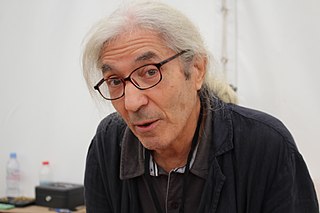
Boualem Sansal is an Algerian author. In 2012, he was named winner of the Prix du roman arabe, but the prize money was withdrawn due to Sansal's visit to Israel to speak at the Jerusalem Writers Festival.
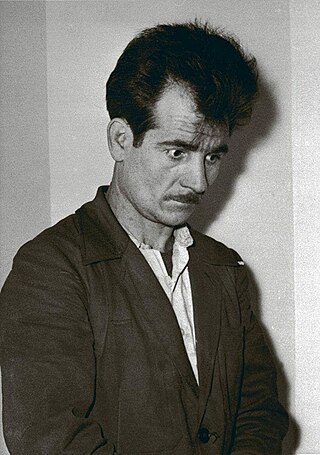
Fernand Iveton was the only pied noir among the 198 supporters of the FLN who were executed during the Algerian War.
Abdelkader Guerroudj was an Algerian man who was condemned to death in December 1957 along with his French wife, Jacqueline Guerroudj. They were convicted as accomplices of Fernand Iveton, the only European who was guillotined for his part in the Algerian revolt. As a result of a high-profile campaign in France, where the issue was called L'Affaire Guerroudj, neither was executed.

Henry Laurens is a French historian and author of several histories and studies about the Arab-Muslim world. He is Professor and Chair of History of the Contemporary Arab world at the Collège de France, Paris.
Éditions Grasset is a French publishing house founded in 1907 by Bernard Grasset (1881–1955). Grasset publishes French and foreign literature, essays, novels and children's books, among others.

Patrick Grainville is a French novelist.
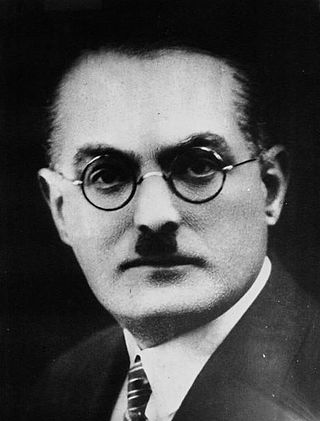
Roger Vercel was a French writer.

Mathias Énard is a French novelist. He studied Persian and Arabic and spent long periods in the Middle East. He has lived in Barcelona for about fifteen years, interrupted in 2013 by a writing residency in Berlin. He won several awards for Zone, including the Prix du Livre Inter and the Prix Décembre, and won the Prix Goncourt/Le Choix de l’Orient, the Prix littéraire de la Porte Dorée, and the Prix du Roman-News for Rue des Voleurs. He won the 2015 Prix Goncourt for Boussole (Compass). In 2020 he was Friedrich Dürrenmatt Guest Professor for World Literature at the University of Bern.

Kamel Daoud is an Algerian writer and journalist. He currently edits the French-language daily Le quotidien d’Oran, for which he writes a popular column, "Raïna Raïkoum". The column often includes commentary on the news.
Maurizio Serra is a contemporary Italian writer and diplomat. Maurizio Serra was Italian Ambassador to the Unesco. He writes in Italian and French. He received the Prix Goncourt de la Biographie in 2011 for his book Malaparte, vies et légendes, a biography on Curzio Malaparte. Serra was elected to the Académie Française on 9 January 2020.

Roger Kempf was a French writer, philosopher, Germanist and ethnologist of literature, and emeritus professor at the École polytechnique fédérale de Zurich.
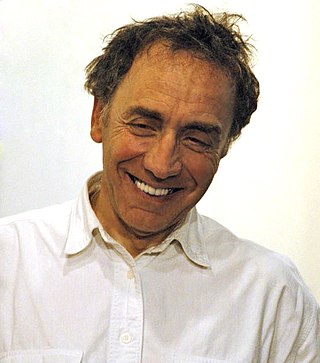
Bernard Chambaz is a French writer, historian and poet, winner of several French literary prizes.
Salim Bachi is an Algerian novelist who grew up in Annaba, eastern Algeria. After a one-year stay in Paris in 1995, he returned there in 1997 to study literature. A pensioner at the French Academy in Rome in 2005, he now lives and works in Paris.

Michel Caffier was a French journalist, writer, and literary critic. He is the author of an abundant work centered on Lorraine: historical novels, essays and reference works, including the Dictionnaire des littératures de Lorraine.
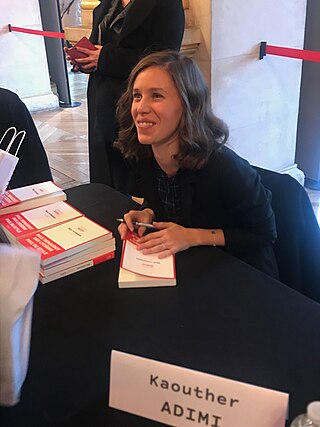
Kaouther Adimi, is a writer, graduate in modern literature and human resources management. She works today in Paris, where she has lived since 2009.
References
- ↑ Notice BnF.
- 1 2 "Joseph Andras : « Je place la poésie au-dessus de tout » - the Dissident - the Dissident". Archived from the original on 31 December 2016. Retrieved 6 December 2016.
- 1 2 3 Quand l’affaire Iveton devient l’affaire Andras by Pierre Assouline on the site La République des livres 13 May 2016.
- ↑ Goncourt du premier roman à Joseph Andras in Le Figaro 9 May 2016.
- 1 2 Joseph Andras remporte le Goncourt du premier roman 2016 sur www.livreshebdo.fr le 9 mai 2016.
- ↑ "De nos frères blessés" n'était pas dans la liste des finalistes. Il a gagné quand même. on the site of the Nouvel Obs 9 May 2016.
- ↑ "Joseph Andras existe, je l'ai rencontré !" by Valérie Marin la Meslée in Le Point 12 May 2016.
- ↑ Joseph Andras refuse le prix Goncourt du Premier roman in Le Nouvel Obs 13 May 2016.
- ↑ Joseph Andras : Un boulanger fait du pain, un écrivain écrit interview realised by Lionel Decottigniesfor L'Humanité 24 May 2016.
- ↑ Joseph Andras : un premier roman qui dit non http://www.lorientlitteraire.com/article_details.php?cid=31&nid=6530 interview realised by William Irigoyen for L'Orient Littéraire June 2016.
- ↑ Joseph Andras: Je ne voulais pas laisser Iveton aux mains de ses bourreaux interview realised by Antoine Perraud on Mediapart 1 June 2016.
- ↑ Jean-Luc Einaudi, Pour l’exemple, l’affaire Fernand Iveton, éditions L'Harmattan, series "Histoire et perspectives méditerranéennes", 1986, ISBN 978-2-85802-721-7.
Notes
- ↑ However, the novel was available as an electronic book on some sales sites since May 4, 2016.
- ↑ Since 1951 with Julien Gracq who refused the prix Goncourt for Le Rivage des Syrtes , no author ever declined an award from the Académie Goncourt, with the exception of the Émile Ajar/Romain Gary case for La Vie devant soi (1975) which revealed the dual identity and mystification of the same writer a few years later.